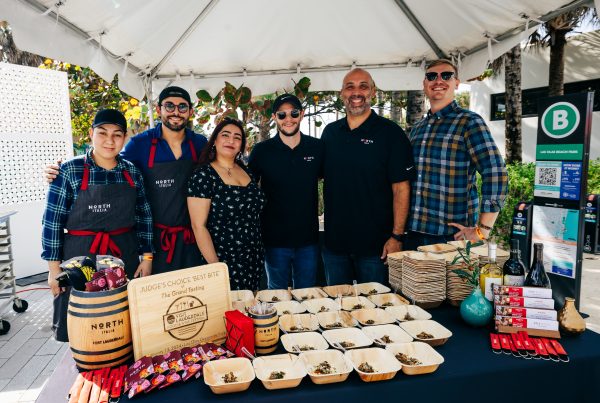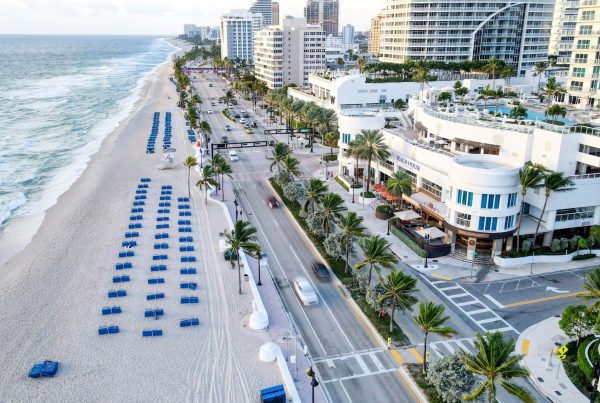There might be hope for saving Palm Beach County’s Agricultural Reserve Area.
On Friday, the county’s planning commission voted 9-4 against a proposal from GL Homes that would allow the company to build 1,250 homes west of Boca Raton on land north of Stonebridge Country Club and west of State Road 7. That land—a parcel called Hyder West—is on the southern edge of the reserve, which includes 22,000 acres and runs north to Lantana Road.
Current rules allow fewer homes on that site. The county is offering to trade 1,600 acres it owns west of West Palm Beach. To make that happen, the county commission would have to change the rule that prohibits the swap of land outside the reserve for higher density within the reserve.
In 1999, county voters approved $100 million in bonds for land purchases as part of a plan to preserve as much agriculture within the reserve as possible. It’s the last coastal farm belt in South Florida and supplies many local restaurants. With that plan came limits on development.
As county planners note, however, the reserve is nearing “fulfillment of that development pattern.” Very little open land remains. Rules require that developers keep 60 percent of land on a parcel open and cluster buildings as much as possible.
GL Homes executives say the swap would benefit the public in three ways. That northern land could allow environmental projects to help the Loxahatchee River, Grassy Waters Preserve and Lake Worth Lagoon. Of those 1,250 residential units, 250 would be affordable housing. There’s a shortage of that in the county. And the project would generate $10 million in county tax revenue.
Critics, however, respond that there is no guarantee of those projects being completed. The county would have to finance them. Though the county needs workforce housing, why should the agricultural reserve suddenly have to supply it? And as one commissioner said, if tax revenue matters most, why not approve homes on all open land.
But most importantly, those critics correctly argued that the swap would irreparably damage the reserve. This swap would create a precedent for others. Suburban development would drive out agriculture. That $100 million would be wasted. GL would benefit more because it could sell those homes near Boca Raton for much more than homes near West Palm Beach.
The planning committee is an advisory panel. The county commission has the final say and may vote on the proposal at its Feb. 2 meeting.
Based on what happened last year, things don’t look good for the reserve. The commission allowed the Lake Worth Drainage District to sell GL Homes 276 acres of undevelopable land in the reserve and obtain permission to build more homes elsewhere in the reserve than the rules allowed.
GL proposed a similar swap involving the reserve but withdrew it in 2018 because the company realized that the commission was opposed. The commission has since changed. I’ll have more before the Feb. 2 meeting.
Delray water plant update

Politics quickly emerged last week when the Delray Beach City Commission discussed the cost of a new water plant and how much residents and business owners will pay for it.
As I wrote last week, the city’s consultant estimated that monthly bills for the average customer could increase from about $57 to about $80 by 2026. After that, the consultant said during Tuesday’s workshop meeting, rates would not stay flat but the increases would be less dramatic. That leveling off could happen before 2026.
Delray Beach will not use property tax revenue for the plant. That money finances the general fund budgets which covers public safety and other services. Money will come from a bond issue backed by water and sewer payments. It goes into an enterprise fund that has its own budget.
Mayor Shelly Petrolia called the $80 figure “significant” and wanted to know how it could be lower. To make that happen, she returned to an old issue of hers: the city’s ample financial reserves.
The cost of the plant could be as high as $130 million, including new meters. A financial consultant told the commission that, to get the best credit rating for the project and keep bond payments as low as possible, the utilities department should have at least $28 million cash on hand.
Petrolia asked why the number had to be so high. That’s the “median” for one year, the consultant said, to show adequate liquidity. The lower the cash on hand, the lower the credit rating.
Then Petrolia asked whether Delray Beach could move money from the general reserve fund—the one for emergencies such as hurricanes—into the utilities reserve fund. The city could move money back once the plant was built.
Seeking to be diplomatic, the consultant said that was a bad idea. Well-run cities, he noted, “keep reserves separate.” Underwriters want to know that there would be a stable source of revenue to repay the bonds from customers’ bills, not money that the commission might have to take back.
Petrolia regularly has complained that the city has too much money in reserves. She has suggested that the city use some of this one-time money to lower property taxes. Doing so would violate basic rules of municipal finance.
City Manager Terrence Moore eventually intervened. By “early spring,” Moore said, staff will present the commission with “options” that will include “scenarios” involving those reserves. After so much mismanagement of the water system, playing it straight on financing a new system might seem to be the best deal for customers.
Two concerning State bills advance

Republicans in Tallahassee last week advanced two bills designed to hobble cities and counties.
Senate Bill 620 and Senate Bill 280 each passed its first committee hearing, in both cases only with GOP support. They would require local governments to issue economic impact statements on every ordinance, no matter how small. They would create a course of action for businesses to sue cities and counties over alleged lost income from regulations.
The bills are a priority of Senate President Wilton Simpson, R-Trilby, an egg farmer who is running for agriculture commissioner. Bills normally are referred to three committees. SB 620 and SB 280 have been referred to just two, which will make it easier and quicker to approve them.
Both are sponsored by Sen. Travis Hutson, R-St. Augustine. Members of the St. Augustine City Commission criticized the legislation, saying that Hutson hadn’t bothered to consult his hometown officials. One commissioner said the legislation could lead to “extremely high cost.” Another called it “a solution to a problem that doesn’t exist,” meaning supposedly out-of-control regulations.
Tina Polsky, who represents Boca Raton, voted against SB 620 as a member of the Judiciary Committee and against SB 280 as a member of the Community Affairs Committee. Boca Raton and Delray Beach oppose both bills. There has not been a vote on the House version of either.
Is an Old School Square settlement off the table?

Apparently, a majority of the Delray Beach City Commission doesn’t want to even discuss a settlement of the Old School Square lawsuit.
City Attorney Lynn Gelin had scheduled an executive session—public excluded—for Friday to discuss a settlement proposal from Old School Square for the Arts. The group sued after Mayor Shelly Petrolia and commissioners Juli Casale and Shirley Johnson voted to terminate its lease.
But the meeting never happened, because there was no consensus to have the meeting, meaning that at least Petrolia, Casale and Johnson had no interest in Old School Square for the Arts’ offer to drop the litigation in exchange for negotiations to resolve differences with the city.
The termination takes effect in three weeks. Today, a judge will hear Old School Square for the Arts’ motion for early mediation. I’ll have more after the hearing.







